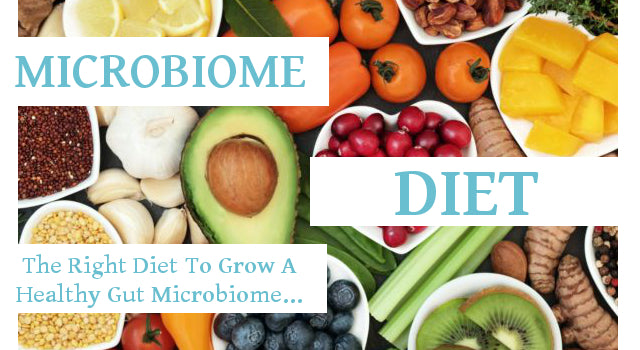Research into the gut microbiome continues to explode. As it does, we gain deeper insight into the impacts these digestive inhabitants play in human health. The bugs that live inside each of us matter more than we can imagine.
The microbiome housed in the digestive system contains trillions of tiny microbes, including bacteria, viruses, fungi and protozoa. Abnormalities in the type and numbers of these living organisms have been linked to cancer, cardiovascular disease, depression, diabetes, metabolic and inflammatory disorders, inflammatory bowel disease, obesity, and high blood pressure.
With everything we have learnt, a focus on creating a healthy microbiome has become both obvious and essential. As the digestive microbes flourish or perish based on the foods we consume, we can use diet as a powerful strategy to improve the diversity and health of these precious bugs.
Prebiotic-rich foods
Prebiotics are, in essence, components of food that we can’t digest, but that feed the gut microbiome. Foods that are rich in prebiotics include whole grains, legumes, nuts and seeds, and fruits and vegetables like:
Whole grains:
Barley, couscous, oats, rye, and wheat
Legumes:
Chickpeas, lentils, red kidney beans, and soybeans
Nuts and seeds:
Almonds, cashews, flaxseeds, and pistachio nuts
Fruits:
Bananas, custard apples, dates, grapefruit, pomegranate, and watermelon
Vegetables:
Allium vegetables including garlic, leek, onion, shallots, and spring onions
Asparagus
Beetroot
Chicory
Fennel bulb
Jerusalem artichokes
Peas like green peas and snow peas
Savoy cabbage
Sweetcorn
Probiotic-rich foods
Whereas prebiotics feed the beneficial bugs, probiotic are the beneficial bugs. We can increase our intake and support our digestive flora through supplementation and food.
Probiotic-rich foods have been fermented and include:
Apple cider vinegar, kefir, kimchi, miso, pickles, sauerkraut, tempeh, yogurt, and the trendy, kombucha.
Remove artificial sweeteners
Research has shown that consuming artificial sweeteners, like aspartame, can alter the prevalence of certain types of gut bugs. This imbalance can lead to inflammation and insulin resistance, showing the importance of following a bug-friendly diet.
What is the right microbiome diet?
It’s great to know which individual foods we should include regularly. There are also two diets that stand out as being microbiome friendly: The Mediterranean diet and a plant-based diet.
The Mediterranean diet provides a wonderful foundation for a healthy gut microbiome. This food plan is rich in fruits and vegetables, incorporates more protein from legumes than animal sources, includes a moderate intake of fish and poultry, with bread and fermented dairy.
A whole foods, plant based diet incorporates natural, whole and unrefined foods that come from plants, not animals. This approach is a wonderful way to include the prebiotic-rich foods mentioned earlier: whole grains, legumes, nuts and seeds, fruits and vegetables. Plus, probiotic-rich foods like apple cider vinegar, kimchi, miso, pickles, sauerkraut, and tempeh.
These two styles of eating also reduce or eliminate the high red meat, fast food, and refined sugar intakes that have been linked to a reduction of beneficial bacteria.
As the study The Effect of Diet on the Human Gut Microbiome: A Metagenomic Analysis in Humanized Gnotobiotic Mice said, “Switching from a low-fat, plant polysaccharide–rich diet to a high-fat, high-sugar “Western” diet shifted the structure of the microbiota within a single day.” One day! Reversing this trend by choosing low sugar, plant based foods gives our helpful bugs the chance to thrive, taking our health along with them.







